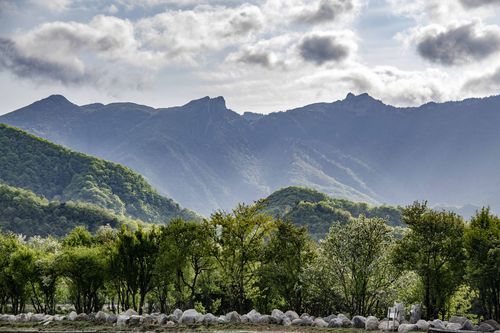Jordan is a country known for its rich cultural heritage, diverse traditions, and warm hospitality. Located in the heart of the Middle East, it has a unique mix of ancient monuments, natural wonders, and vibrant cities that make it a must-visit destination for history buffs, adventure seekers, and cultural enthusiasts alike.
From the ancient ruins of Petra and Jerash to the stunning landscapes of Wadi Rum and the Dead Sea, Jordan has much to offer in terms of exploring its diverse cultural traditions. Let’s take a closer look at some of the most fascinating aspects of Jordanian culture:
1. Food: Jordanian cuisine reflects the country’s diverse history, with influences from the Ottoman Empire, Arab Bedouin tribes, and neighboring countries. Some of the most popular dishes include mansaf (a rice and meat dish), maqluba (a layered rice and vegetable dish), and falafel and hummus (a vegan-friendly option). Jordan is also known for its coffee culture, with strong Arabic coffee served throughout the day.
2. Clothing: Jordanian traditional dress varies depending on the region and occasion. Women often wear the hijab (headscarf) and abaya (a loose-fitting cloak), while men may opt for a thobe (a long white shirt) and a keffiyeh (a traditional black and white scarf). However, in urban areas, western-style clothing is also popular.
3. Music and dance: Jordanian music is a blend of traditional Arabic melodies and modern influences. The most popular instruments include the oud (a stringed instrument), tabla (drums), and qanun (a type of zither). Folk dances such as dabke (a line dance) and zarb (a Bedouin drumming dance) are also common, often performed at weddings and other celebrations.
4. Customs and traditions: Jordanians are known for their hospitality, generosity, and strong family ties. Guests are welcomed with open arms and treated with respect, and meals are often shared with family and friends. Bedouin traditions such as camel trekking and camping in the desert are also popular, giving visitors a chance to experience the rich nomadic lifestyle.
5. Art and craft: Jordan has a rich heritage of handicrafts, including pottery, weaving, and embroidery. The traditional craft of mosaics is also deeply ingrained in Jordanian culture, with stunning examples found in ancient sites such as Madaba and Jerash.
In conclusion, exploring the rich diversity of cultural traditions in Jordan is an experience unlike any other. From the delicious cuisine to the colorful dress, the vibrant music to the warm hospitality, there is much to discover and appreciate in this beautiful country. So why not plan your visit and see for yourself? You won’t be disappointed!
(Note: Do you have knowledge or insights to share? Unlock new opportunities and expand your reach by joining our authors team. Click Registration to join us and share your expertise with our readers.)
Speech tips:
Please note that any statements involving politics will not be approved.
